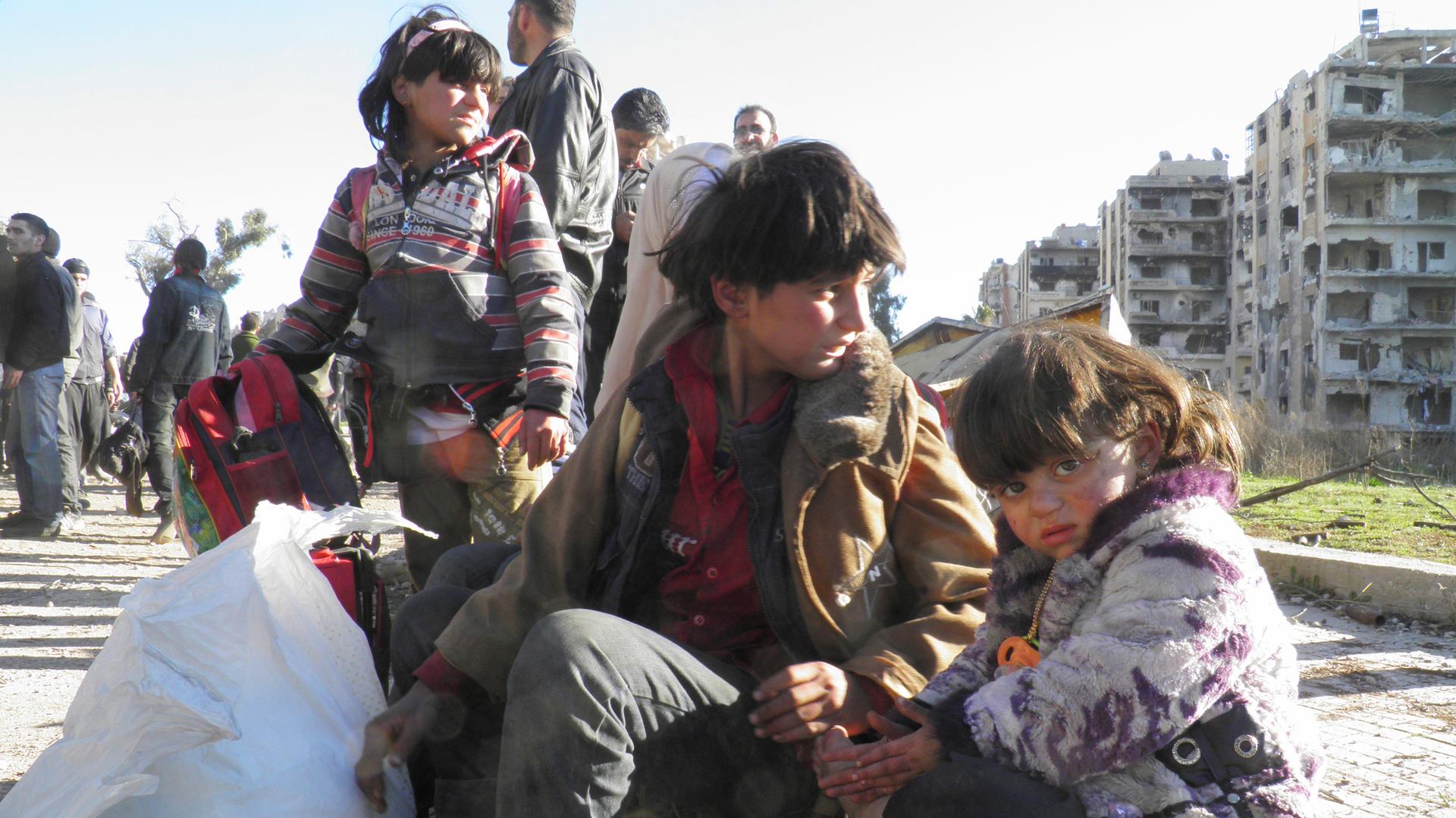Aid workers scramble to assist people evacuated from Homs during a shaky ceasefire
Children sit with their belongings as they wait to be evacuated from a besieged area of Homs February 12, 2014.
UN aid agencies on Wednesday managed to deliver truckloads of food and medicine to people who remain stranded in the Syrian city of Homs.
Wall Street Journal reporter Sam Dagher, who is in Homs, reports that the aid consisted of "mainly flour, food rations, and medical kits. These are things they were not able to take in earlier on Saturday when a UN and Syrian Red Crescent convoy was attacked with mortars and sniper fire. So today, they tried to accomplish that part of the mission."
Dagher estimates approximately 300 people were evacuated Wednesday from the old quarter in Homs despite "a real fear that they might be attacked again."
As for the roughly 1,000 civilians who remain in the old city, Dagher says, "they may be related to the rebels, or people who just don't want to leave their neighborhoods, so they've chosen to stay and the UN has really pressured the authorities to allow these people who want to stay to remain there and for the UN to be able to help them by taking in food and medicine."
But there's a lot of bad blood around, according to Dagher. The people fighting alongside the Syrian regime are "young men from the Alawite community who have joined paramilitary groups like the National Defense Force, and these people have seen their comrades, their loved ones killed by rebels during the war. So they don't want to see food and medicine going to these people, so there's a lot of tension and apprehension," he says.
The Homs evacuees are being relocated to another neighborhood west of Homs, now a community fenced in with tight security and border checks.
Dagher says the tense situation in Homs is evident in the faces of the men, women and children leaving.
"They're tired, exhausted, frail and fearful. There's a lot of apprehension because, you have to remember, the government promised they [the evacuees] would all be given an opportunity to go through this amnesty, that they would be freed, but there's no longer any trust here. You're talking about a war's that's been going on here for close to three years now, so people are really afraid."
